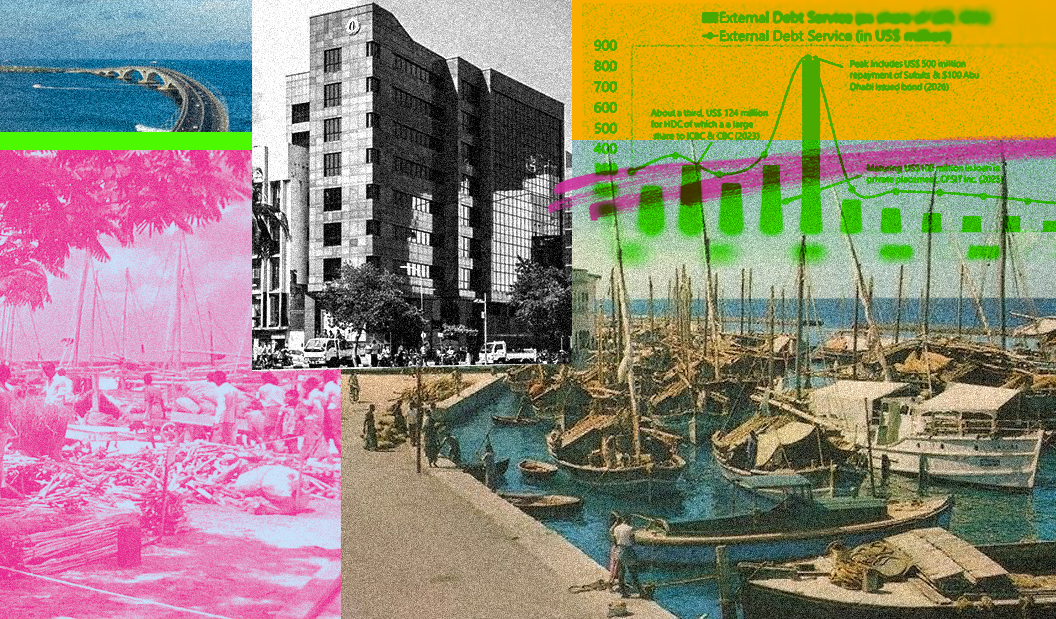August 24, Malè: In the allocation and utilisation of resources—be they land or water, bridges or palm trees, whether planning for an urban centre or a small island, whether it’s Gdh. Thinadhoo or Vaavu Thinadhoo, whether the population is 50,000 or 500—following democratic processes matter, and impacts the outcome.
Introduction
The government of Maldives has introduced an “Urban Development Bill” to the Parliament. The proposed Bill, if passed in its current form, threatens to unravel years of progress towards decentralised governance and, thereby the Maldives’ path to building robust democratic institutions. If enacted, this legislation could severely undermine the country’s decentralisation system and compromise key principles of good governance, particularly transparency in resource allocation, management, and utilisation. The Bill undermines the role of elected officials in the governing of their communities, and is dismissive of the constitutional powers vested in these local councils.
This approach not only contradicts the spirit of local empowerment enshrined in the Maldives Constitution but also stands at odds with President Muizzu and his administration’s repeated claims to champion the decentralisation system.

Why Did We Decentralise?
The move towards decentralisation in the Maldives, enshrined in the 2008 Constitution, was not an arbitrary change. It was borne of Maldivians’ aspirations to govern ourselves better and more democratically. Chapter VIII of the new constitution emerged from a collective desire to address longstanding issues plaguing the country: authoritarianism, corruption, abuse of power, and the lack of agency given to island and atoll communities in controlling their resources. It aimed to reduce dependence on the central government for crumbs, and to break away from a system where community development relied solely on political patronage from Atoll Chiefs, local MPs, or friendly ministers.
The decentralisation system established atoll and island councils, and Women’s Development Committees, giving them significant roles and powers. It was designed to empower communities, allowing them greater control over their resources and development priorities. However, the proposed Urban Development Bill threatens to undermine this entire framework. The bill yanks power away from local councils, dragging it back to the central government—effectively gutting the roles of atoll councils and councillors at every level.
Democracy: Beyond the Ballot Box
Democracy is not merely about the ability to cast a secret ballot and choose a leader. Democracy is also by no means just the law of the majority. This reductionist view of democracy fails to capture the essence of good governance. Democracy – both in theory and in practice – encompasses all the minuscule and major processes through which citizens not only cast votes but also actively participate in decisions affecting their daily lives; about their daily governance.
Process is intrinsically tied to good governance. In the Maldivian context, the system of local councils and the decentralisation framework established by the new Constitution are integral components of this participatory decision-making. They embody the principle that democracy is a continuous process of citizen engagement.
The decentralisation system, established under the 2008 Constitution, was designed to embody this broader understanding of democracy. It aimed to bring governance closer to the people, by electing local officials, allowing communities to have more say in the decisions that affect their daily lives. This system recognised that true democracy is lived daily, through participatory decision-making processes, transparent resource allocation, and accountable local leadership.
The Urban Development Bill: Throwing the Baby Out with the Bathwater
The push for this new bill seems to stem from frustrations with the current efficiency of councils and councillors. Parliamentary debate on the Bill focused on the performance of local councillors rather than on addressing the systemic flaws or challenges in the decentralisation framework.
However, this approach of dismantling the entire system due to dissatisfaction with its current practitioners risks discarding the valuable aspects of the system along with perceived flaws.
Instead of a hasty, and highly politically charged ambush on the system, what is needed is a commitment to continuous improvement of the system. Here’s where discussion needs to focus on:
1. Resource allocation
2. Implementing transparent mechanisms for tracking and reporting resource utilisation at the island and atoll
3. Improving on disparities and inefficiencies in funding allocation
4. Enhancing revenue generation by empowering and equipping local councils with greater authority, and training to generate and manage their own revenues, and to create sustainable revenue streams for their community projects and councils.
5. Strengthening accountability mechanisms such as establishing clear consequences for mismanagement or corruption at the local level, and implementing robust auditing processes for local council finances and projects.
6. Improving coordination between Central and Local Governments, such as implementing a system for resolving disputes on division of responsibilities or resources
7. Electing better representatives, and capacity building for incumbents, through voter education programmes about the importance of local governance and the role of councillors, trainings and providing technical support to councils in areas such as urban planning, environmental management, and public service delivery
We cannot revert to a centralised structure thereby potentially recreating the opaque conditions that necessitated decentralisation in the first place. The way forward is to keep trying to improve the system.
Implications for Good Governance
A 2023 report by the International Republican Institute (IRI) highlighted corruption as the biggest concern among Maldivians, while also revealing strong support for decentralised governance. This juxtaposition underscores the critical role of decentralisation in combating corruption and promoting transparency. Global best practices also show decentralisation is widely recognised as an effective tool in the fight against corruption, as it enhances accountability and brings decision-making closer to the people.
Any diminishing of the decentralisation system could have profound implications for good governance in the Maldives:
1. Transparency and Accountability: Centralised decision-making often lacks the transparency of local governance structures. With reduced local council powers, it may become more difficult for citizens to hold decision-makers accountable for development choices.
2. Citizen Engagement: The bill could significantly reduce avenues for citizen participation in governance, a key aspect of good governance principles.
3. Resource Allocation: a return to a system where resource allocation is determined more by political considerations than local needs, forcing communities to rely solely on the central government.
4. SDGs: The bill’s approach moves the Maldives away from its commitments to Sustainable Development Goals, particularly SDG 16 (Peace, Justice, and Strong Institutions) and SDG 11 (Sustainable Cities and Communities). By centralising power and potentially reducing local input, the bill risks creating a disconnect between development plans and local realities. This approach is not only less democratic but also less sustainable.
a) SDG 11: Sustainable Cities and Communities
SDG 11 aims to “make cities and human settlements inclusive, safe, resilient and sustainable”. This goal recognises that sustainable urban development requires more than just infrastructure – it needs robust, participatory local governance.
People’s ability to govern over their resources is fundamental to creating sustainable communities. The proposed Urban Development Bill, by centralising power and curtailing local autonomy, threatens to undermine this fundamental advantage.
b) SDG 16: Peace, Justice, and Strong Institutions
SDG 16 promotes “peaceful and inclusive societies for sustainable development, provide access to justice for all and build effective, accountable and inclusive institutions at all levels”. This goal emphasises the importance of participatory decision-making and responsive institutions – principles that are at the heart of the Maldives’ current decentralisation system. By eroding the powers of local councils, the Urban Development Bill risks weakening these inclusive and accountable institutions.
Conclusion
Any changes we adopt, including the Urban Development Bill, that affect the decentralisation system must increase local participation and control over resources. Reforms should strengthen local governance, reduce opportunities for corruption and enhance, rather than diminish, transparency and accountability. A change cannot be less democratic – change must be more democratic, more participatory, more transparent.



